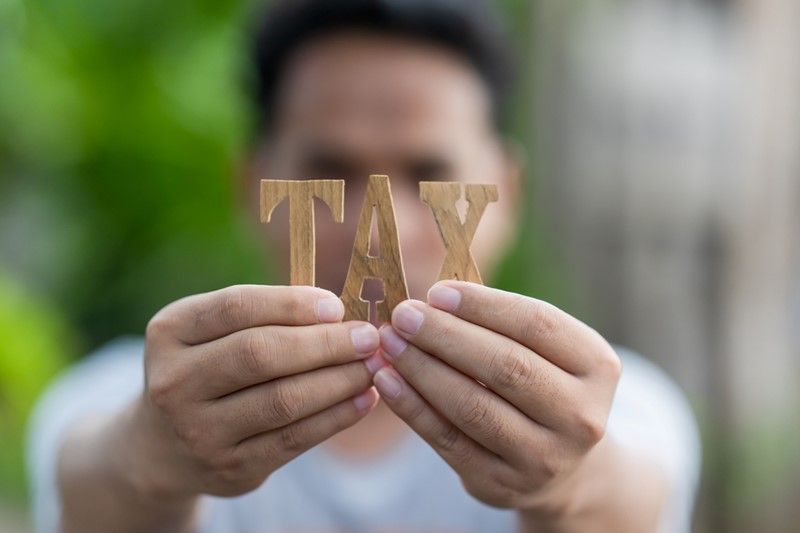The degree of speculation about this year’s Budget announcements was further compounded when the Office of Budgetary Responsibility uploaded their report on Budget changes prior to Rachel Reeves announcements to Parliament.
However, there are to be no changes to the main rates of Income Tax, NIC and VAT that affect wage earners across the UK, but the Budget Report highlights numerous changes to plug the gap in government finances. We have set out below the most impactful of these changes as they affect business owners and UK taxpayers.
Individuals — what changes and what to watch
Personal tax thresholds remain frozen
- The thresholds for income tax and employer National Insurance contributions will be frozen until at least April 2031 (with earlier freezes extended further by the new Budget).
- This “fiscal creep” means that as wages (or inflation) rise, more people will effectively pay higher rates of tax or move into higher tax bands even though nominal rates remain unchanged.
Higher tax on investment, property and savings income
- Tax rates on dividends, property income and savings income are being increased by two percentage points. The dividend changes are due to take effect from April 2026 and the property and savings income a year later from April 2027. The dividend changes only apply to the basic and higher rate bands.
- Existing allowances (for example on dividends and savings) will continue to provide protection for people with low to moderate amounts of such income.
ISA reforms will see some limits reduced
- From 6 April 2027, the annual cash limit for ISA savings will be reduced to £12,000. The subscription limits for ISAs overall will remain at £20,000. Savers aged 65 and over will continue to be allowed to save up to £20,000 in a cash ISA each year.
Two-child limit for Universal Credit (UC) to be scrapped
- The two-child limit introduced back in 2017 is to be scrapped from April of next year. The government has said that removing the two-child limit will lift 450,000 children out of poverty. There had been a concerted campaign over many years to have this cap removed.
Pension contributions via salary sacrifice will be limited
- For individuals using salary sacrifice schemes to contribute to pensions tax-efficiently, the relief will be capped so that only the first £2,000 of pension contributions per person per year remain exempt from National Insurance. Contributions above that threshold will be subject to NICs from 2029.
- This change is likely to hit higher earners and those with larger pensions contributions more heavily.
A new council-tax surcharge for high-value properties
- From April 2028, homes valued at over £2 million will attract a “High Value Council Tax Surcharge”.
- The surcharge will be banded: a property worth £2 million to £2.5 million will incur a surcharge of £2,500; properties worth more will pay higher surcharges (up to £7,500 for properties valued over £5 million).
- The surcharge will be collected locally (with council tax) but the revenue will go to central government.
New taxes on electric vehicles, online gambling and imports
- A new per-mile Electric Vehicle Excise Duty (eVED) will be introduced for battery electric cars and plug-in hybrids from April 2028. This is intended to replace some of the lost revenue from fuel duty. The rate will be 3p per-mile for fully electric vehicles and 1.5p for plug-in hybrids.
- The government is removing the customs-duty relief for low-value imports (£135 or less), a move aimed at levelling the playing field for UK retailers competing with foreign-based online sellers. This change will take effect from March 2029 at the latest.
- There will be tighter rules for VAT on ride-sharing taxi apps (preventing misuse of a scheme intended for tour operators).
- Changes to the taxation of online gambling are also on the way. This includes an increase in Remote Gaming Duty from 21 per cent to 40 per cent from 1 April 2026 and the abolishment of Bingo Duty from the same date.
Other changes with possible future effects
- Some changes to Capital Gains Tax for non-resident individuals, share exchange/reorganisation rules, and inheritance-related trust charges for former non-domicile residents were also announced.
Businesses — what changes and what to watch
Business rates relief and targeted support for certain sectors
- The government plans to make permanent lower business rates for over 750,000 retail, hospitality and leisure properties amounting to nearly £900 million per year from April 2026.
- A support package worth £4.3 billion will help businesses with rate bill increases following revaluations from April 2026.
- For film studios, 40 per cent business rates relief will be maintained for ten years, until 2034.
Corporation tax, capital allowances and investment incentives adjusted
- Corporation Tax remains capped at 25 per cent for the duration of this Parliament.
- Writing-down allowances (the tax relief businesses claim when they buy capital items not qualifying for “full expensing”) will be reduced from 18 per cent to 14 per cent from April 2026, making it marginally less attractive to invest in some capital items unless they fall under the full expensing rules.
- From 1 January 2026, the government will introduce a new 40 per cent First Year Allowance for main rate expenditure. This will apply to most spending on assets for leasing and expenditure by unincorporated businesses.
Withdrawal of certain reliefs and tightening of anti-avoidance rules
- Relief for gains on disposals to Employee Ownership Trusts is being cut, from 100 per cent to 50 per cent. That reduces the appeal of these trusts as a tax-efficient exit strategy or ownership structure for both entrepreneurs and businesses.
- The Budget introduces new anti-avoidance rules addressing certain non-derecognition liabilities, among other technical reforms.
Changes to imports, compliance and VAT arrangements
- The removal of the low-value consignment relief (which previously exempted many foreign online retailers from customs duties on small-value imports) may benefit UK bricks-and-mortar retailers by levelling the playing field.
- More robust HMRC compliance and administrative reforms are planned, which the government expects will reduce the tax gap (the difference between what is owed and what is collected).
Minimum wage changes
- The National Living Wage (NLW) will rise from £12.21 to £12.71 per hour on 1 April 2026, a 4.1 per cent increase. The National Minimum Wage (NMW) for 18-20 year olds will also increase from £10.00 to £10.85, an 8.5 per cent increase, increasing pay by up to £1,500 a year. This change is part of efforts to narrow the wage gap between younger workers and those on the NLW. Additionally, the NMW for 16-17 year olds and the Apprentice Rate will both rise from £7.55 to £8.00 (a 6 per cent increase).
What this means in practice for different types of taxpayers
For a middle-income employee
If you are a typical employee with mainly salaried income and modest savings or investment income, the freeze on thresholds may slowly push more of your earnings into higher rate bands, reducing your disposable income over time. If you rely on dividends or rental income, your after-tax return may suffer due to the higher rates. Pension contributions made via salary sacrifice may lose some of their attractiveness if they exceed £2,000 per year, but modest savers should be relatively unaffected.
For higher earners, property owners, and investors
If you own a high-value home, rental property, or significant investments, these changes may hit you harder. The council-tax surcharge on expensive properties and the higher rates on investment income make clear that future tax burdens will increasingly fall on wealth, capital, and savings rather than earned income. Pension-savings advantages for high earners are reduced. For business owners, particularly those using or considering Employee Ownership Trusts, the reduction in reliefs may diminish some previously attractive exit or succession planning strategies.
For small businesses, investors and growth companies
The maintenance of Corporation Tax at 25 per cent provides some certainty, but reduced capital allowances and fewer reliefs may raise the effective tax cost of certain investments. On the plus side, support for high-streets (lower business rates for retail, hospitality, leisure) and targeted reliefs (e.g., for film studios) offer relief for businesses in those sectors. The removal of import-duty relief for low-value imports could benefit UK retailers by levelling the competitive field.
Broader context and likely economic impact
- The government expects these measures to raise around £26 billion per year by 2029–30, making this among the largest medium-term tax increases in recent decades.
- As a result, the overall tax take is projected to reach a record 38 per cent of GDP by 2030–31.
- Some planned reliefs and public spending measures are intended to offset cost-of-living pressures: for example, cuts to energy bills, freezing rail fares, and support for households on lower incomes.
What to keep an eye on
- Implementation: Many changes (pension-salary sacrifice cap, high-value property surcharge, vehicle mileage levy) come in over a number of years. The detail of how they will be applied may affect their actual impact.
- Behavioural responses: As thresholds remain frozen and investment incomes are taxed more heavily, individuals may shift the balance of their income (more salary, less dividends, changes to pension contributions) which could reshape personal tax planning strategies.
- Business planning and investment: Reduced writing-down allowances and withdrawal of some reliefs may influence decisions about capital expenditure, timing of investments, and business structure (especially for those considering Employee Ownership Trusts).
- Compliance and administration: The government’s push to tighten compliance and close loopholes may mean higher scrutiny for individuals and businesses, particularly around imports, VAT, and offshore arrangements.




